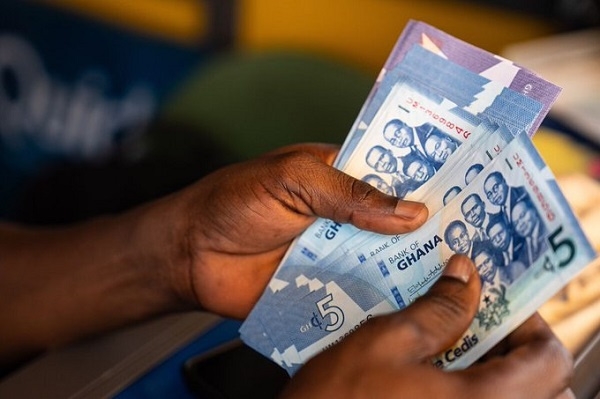Headline inflation will continue on its disinflationary trend for May 2024, despite ongoing pressures on the cedi, analysts at investment firm Apakan
Headline inflation will continue on its disinflationary trend for May 2024, despite ongoing pressures on the cedi, analysts at investment firm Apakan Securities have stated.
In a recent note, the firm interprets the Bank of Ghana’s (BoG) latest monetary policy document as “predominantly cautious and pragmatic”, reflecting a deliberate effort to rein-in inflation while navigating economic uncertainties.
BoG’s decision to hold the policy rate steady, along with the implementation of dynamic Cash Reserve Ratio (CRR) adjustments, is seen as a strategic move to support the disinflation process.
Apakan Securities highlighted: “We believe the policy-rate-hold decision, coupled with implementation of the dynamic CRR adjustments, will support the disinflation process”.
Despite the volatility observed in the inflation trajectory during the first four months of 2024, the annual inflation rate has broadly remained on a downward trend.
The latest Consumer Price Index (CPI) release for April 2024 showed a decline in the annual figure by 80 basis points (bps) to 25 percent year-over-year (y/y). However, the monthly CPI saw a sharper rise of 1.8 percent month-over-month (m/m) from 0.80 percent m/m – indicating potential near-term risks.
Food inflation eased significantly by 280 bps to 26.8 percent in April while non-food inflation advanced by 90 bps to 23.5 percent. Core inflation, which excludes volatile food and energy prices, rose to 26.3 percent y/y in March but receded to 28.80 percent y/y in April, underscoring mixed signals in underlying inflationary trends.
“We interpret the monetary policy document’s tone as predominantly cautious and pragmatic as BoG seeks to carefully rein-in inflation,” Apakan Securities noted.
This cautious approach comes as BoG navigates the complex dynamics of inflation control amid external economic pressures.
The cedi has faced mounting pressures in second quarter-2024, contrary to earlier projections. Year-to-date, the cedi weakened by 18.34 percent against the US dollar – trading at 14.65 per dollar on the Bloomberg market rate and 14.01 per dollar on the BoG interbank market.
This depreciation is primarily attributed to increased foreign exchange (FX) demand, high energy sector arrears and weaker sentiments surrounding the progress of external debt restructuring.
“Thecedi’s sharp depreciation has been a function of increased FX demand, elevated energy sector arrears and weaker sentiments surrounding progress of the external debt revamp,” Apakan Securities explained.
The local currency’s performance also reflects a softer external sector position. Slower export growth (+4.9 percent) combined with stronger import growth (+22.2 percent) resulted in a lower trade balance surplus of US$744.3million compared to US$1.39billion in the same period last year.
Nevertheless, the BoG’s gross international reserves increased from US$6billion to US$6.6billion in April 2024 – providing three months of import cover.
This, in addition to other expected inflows, has prompted both the fiscal authority – Ministry of Finance – and monetary authority – BoG – to offer assurances of increased FX supply and a more stable exchange rate in the coming week.
Source: thebftonline.com

COMMENTS